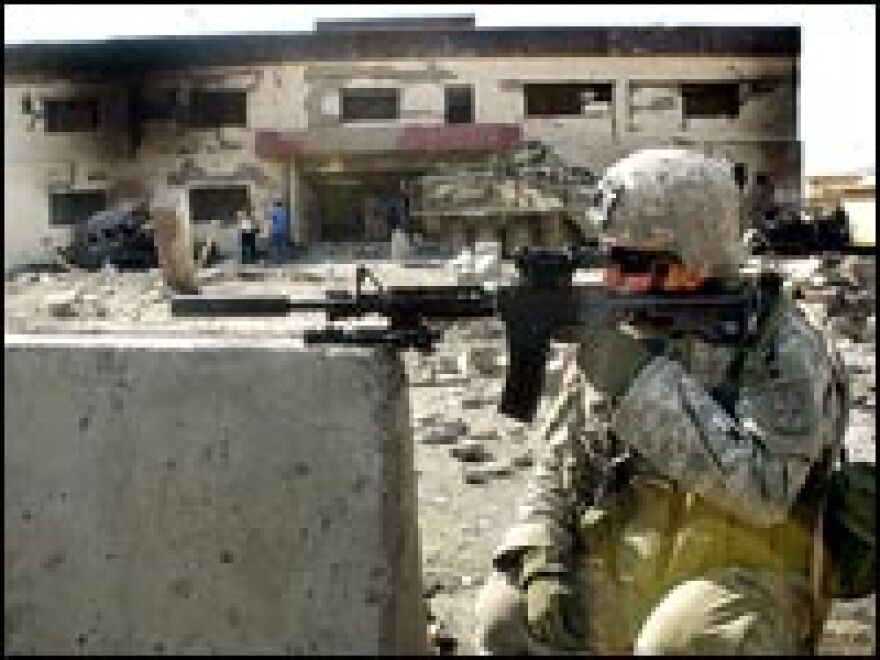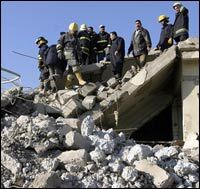This story is free to read because readers choose to support LAist. If you find value in independent local reporting, make a donation to power our newsroom today.
Mosul and the Fight for Iraq


Five years after the United States attacked Iraq, perhaps no place is more emblematic of the war than the northern city of Mosul. The fighting in Iraq's third-largest city seems to just go on and on. The U.S. military takes part of the city only to lose it again. Insurgents move out, then they come back in.
After the U.S.-led invasion of Iraq in the spring of 2003, Gen. David Petraeus said, "Every city that we liberated, we were applauded and given thumbs-up everywhere we went. It's temporary if we don't get it right. Our determination is to do the very best we can to get it right."

A year later, there were signs that things weren't right in Mosul.
"In May [2003], the city was considered safe enough for U.S. administrator Paul Bremer to stroll those streets without a flak jacket," Steve Inskeep reported in April 2004. "This week, Paul Bremer returned for another visit, but instead of going into town, he remained inside the U.S. military base here. In the last few weeks, half a dozen foreigners have been assassinated in Mosul."
By the fall 2004, things had gotten much worse. Philip Reeves reported about going on patrol with U.S. forces in Mosul:
"The soldiers clamber out into the bright, cold morning. There's hardly anyone around. The shutters are up. The surrounding buildings bear the scars of battle. The bodies of three men, shot through the back of the head, lie by the road. They seem to have been deliberately placed there so the public can see them."
The military generally retreated from Mosul and other cities into mega-bases. Soldiers had little ineraction with the Iraqi population, other than to conduct raids to capture insurgents. There was virtually no reconstruction and there weren't enough soldiers to provide real security.
And during elections in 2005, the Mosul police force vanished. Much of the city's Sunni population didn't vote and ended up with no representation in the local council, which remains a major issue today.
After things calmed a bit in Mosul that year, the U.S. military's focus moved elsewhere. Mosul ended up sliding back into a war of attrition.
The 2006 bombing of the golden dome of a sacred Shiite mosque in Samarra unleashed a civil war that was concentrated in Baghdad. The U.S. military's resources and focus shifted to the Iraqi capital.
Last year, the U.S. military implemented its "surge," a plan to boost U.S. troop levels in order to put a lid on the violence. More troops, stationed in smaller bases, patrolled neighborhoods. But as troop levels increased in Baghdad, insurgent groups were squeezed out of the capital and moved to Mosul.
Today, insurgents are concentrated in Mosul and they are fighting for that city. The Sunni population, which didn't vote in the 2005 election, feels disenfranchised and there's a sense of despair.
Copyright 2022 NPR. To see more, visit https://www.npr.org. 9(MDA1OTI3MjQ5MDEyODUwMTE2MzM1YzNmZA004))









